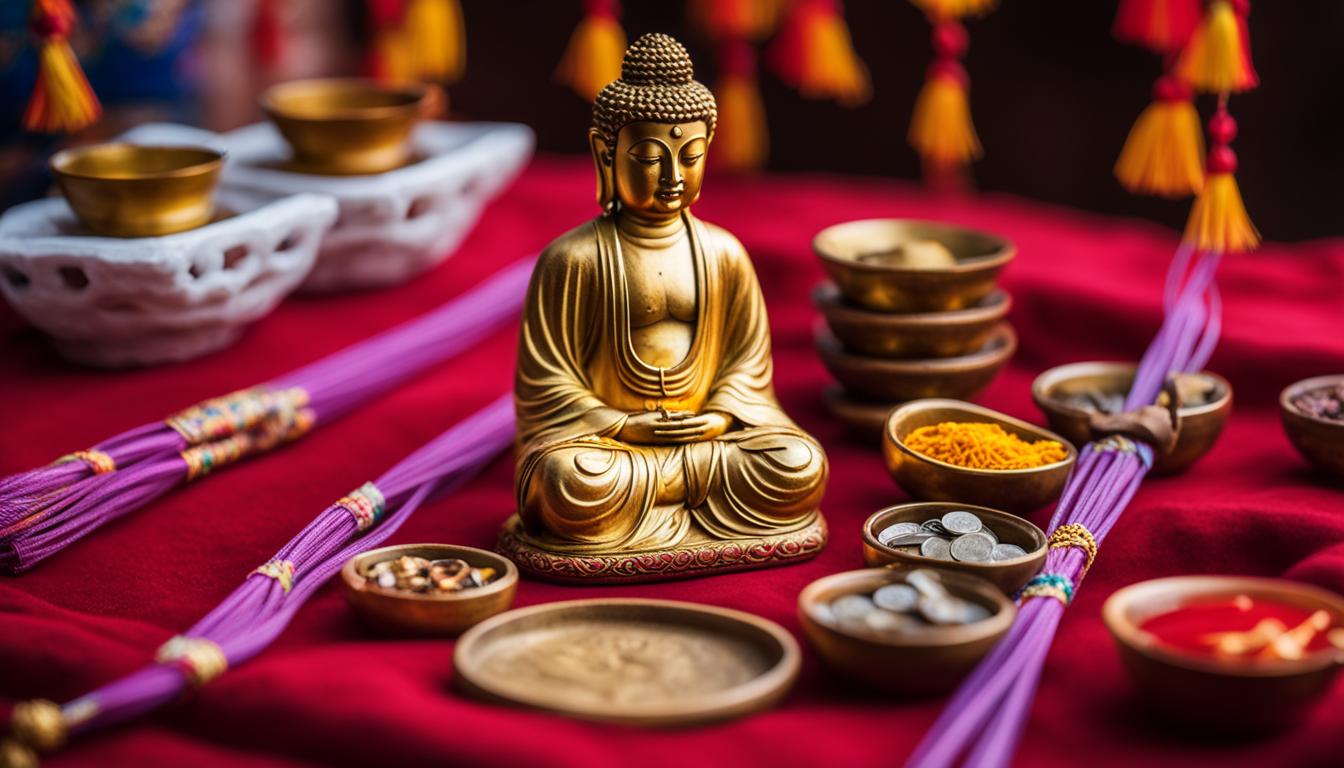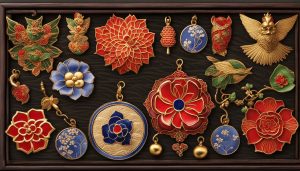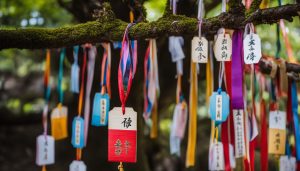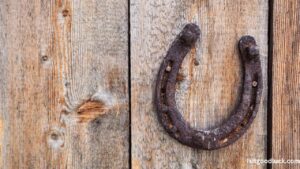When you visit a Buddhist temple, you will discover a fascinating array of traditional items and rituals that are believed to bring good luck and fortune. These elements play a significant role in the religious practices and beliefs of Buddhism, serving as symbols of fortune and protection.
Contents
Key Takeaways:
- Buddhist temples offer various items and rituals aimed at bringing good luck
- Traditional items for luck at Buddhist temples include hanging ema, fortune-telling with omikuji, and the presence of omamori
- Ema are wooden blocks with wishes written on them, hung at the temple for good fortune
- Omikuji is a practice of fortune-telling to unveil your fate and receive blessings
- Omamori are powerful amulets that offer protection and luck
Hanging Ema: Wishes for Good Luck
At Buddhist temples and Shinto shrines, you’ll find a unique tradition known as hanging ema. These are wooden blocks that play a significant role in conveying wishes for good fortune. Originating from the practice of offering horses to the gods, ema are now adorned with pictures of horses and other animals. When visiting a temple, you can purchase an ema, write your wishes on the back, and hang it at the temple to send your desires to the gods.
The ema come in various shapes and sizes, often decorated elaborately. They serve as tangible representations of hopes and dreams. The accumulated ema are later burned in a special ritual during Hatsumode, a popular New Year’s custom in Japan. This ritual aims to send the wishes and prayers to the gods for their divine intervention in bringing good luck and fortune to those who made the ema offerings.
| Example of Ema | Wishes |
|---|---|
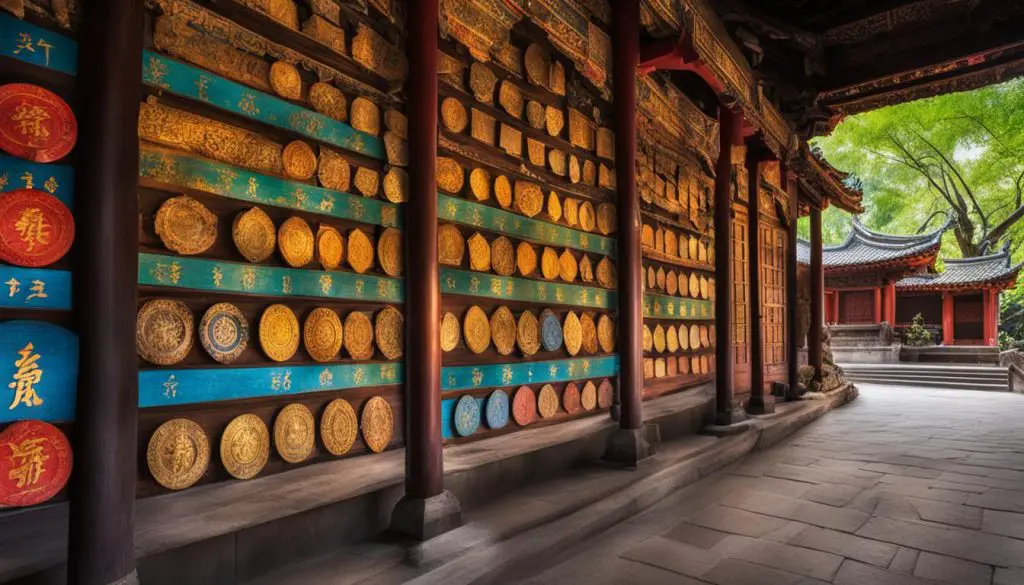 |
“May I find success in my career” |
| “Wishing for good health for my family” | |
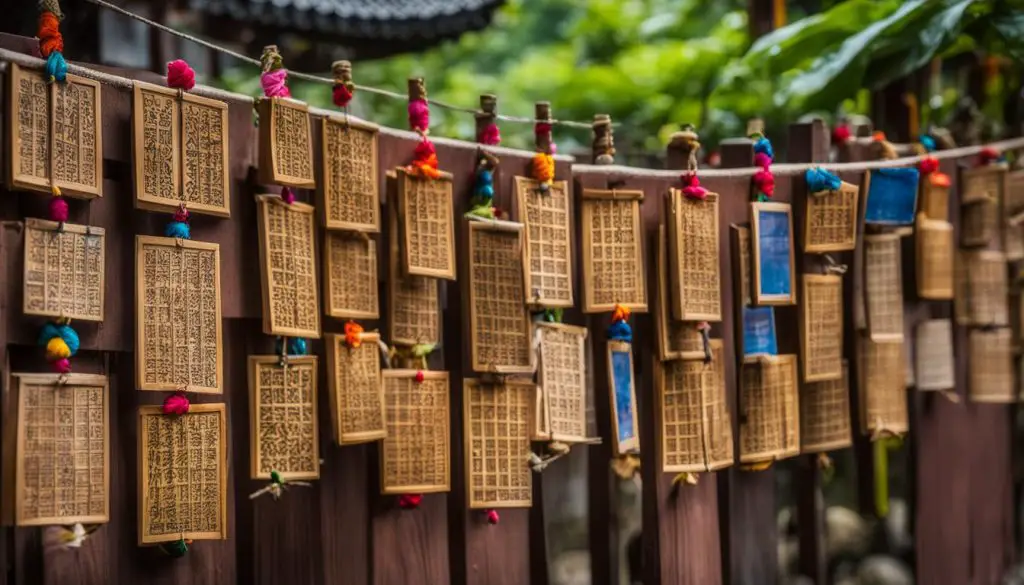 |
“Hoping to find love and happiness” |
Fortune-Telling with Omikuji: Unveiling Your Fate
At Buddhist temples in Japan, one popular tradition for seeking guidance and insight into the future is through the practice of omikuji, or fortune-telling. This age-old ritual involves shaking a cylinder filled with numbered sticks and selecting one to receive a fortune. The omikuji fortunes range from very good to very bad, providing a glimpse into what lies ahead.
When you receive an omikuji, you’ll find a detailed description of your fortune that includes predictions for different aspects of your life such as love, career, and health. It’s important to note that omikuji fortunes are not set in stone but rather serve as a guide for reflection and contemplation. If your fortune is favorable, you may keep it with you as a token of good luck. However, if you receive a bad fortune, it is customary to tie it to a designated area at the temple grounds in order to dispel any negative energies.
While most omikuji fortunes are written in Japanese, some temples offer translations or English versions to cater to international visitors. It’s advisable to have a basic understanding of the tradition or seek assistance from temple staff to fully comprehend the meanings and interpretations of your fortune. The practice of omikuji is often conducted during special events and festivals, allowing participants to engage in a unique cultural experience while gaining insights into their future.
For those with a sense of curiosity or a desire to gain spiritual guidance, trying omikuji at a Buddhist temple can be an intriguing and enlightening experience. Whether you receive a fortune that fills you with joy or prompts reflection, this traditional practice offers a fascinating glimpse into the interplay between fate, fortune, and personal choices.
The Fortunes of Omikuji
Omikuji fortunes can provide insight into various aspects of your life. Here are some common themes you may encounter:
- Love and Relationships: Discover what the future holds for your romantic endeavors and personal connections.
- Finances and Career: Receive guidance on matters related to your professional journey, financial stability, and success.
- Health and Well-being: Gain insight into your physical and mental well-being, offering suggestions for maintaining a balanced and healthy lifestyle.
- Travel and Adventure: Find out if exciting journeys or new experiences await you in the near future.
“The practice of omikuji offers a glimpse into the interplay between fate, fortune, and personal choices.”
Remember, while omikuji fortunes offer insight and guidance, they should be viewed as tools for self-reflection rather than absolute predictions. Embrace the experience with an open mind and use the fortunes as a catalyst for personal growth and understanding. Seeking out the wisdom of omikuji can be an intriguing way to connect with the traditions and spirituality of Japanese culture.
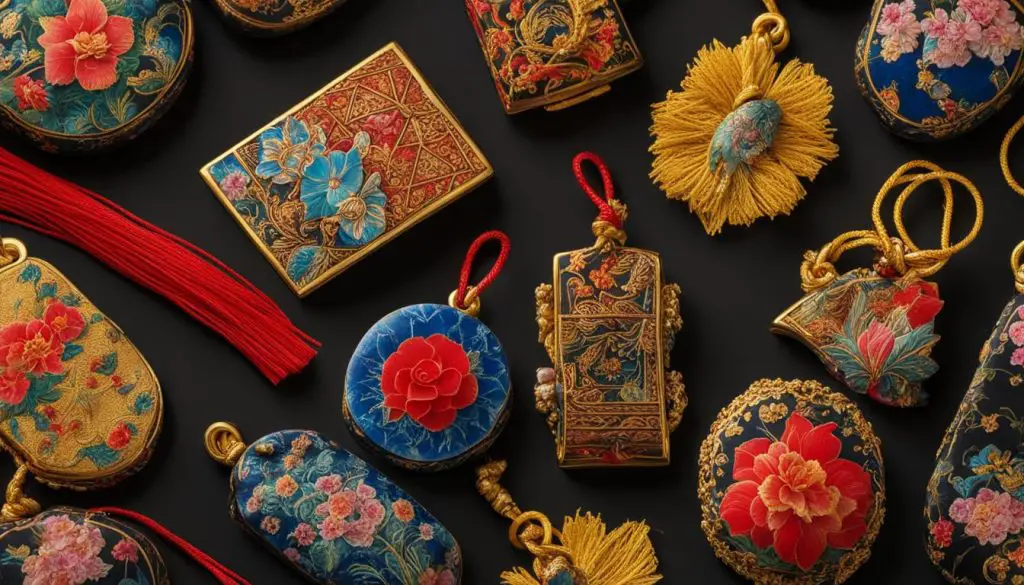
Conclusion
Buddhist temples provide a wealth of traditions and rituals dedicated to bringing good luck and fortune into your life. These ancient practices are deeply ingrained in Japanese culture and have stood the test of time as symbols of prosperity.
At these temples, you can embark on a spiritual journey, seeking blessings and protection while expressing your desires for a prosperous life. From hanging ema, where you can send your wishes to the gods, to receiving fortune-telling omikuji to unveil your fate, there are numerous opportunities to connect with the divine and embrace the possibilities of good fortune.
One of the most powerful traditions found at Buddhist temples is the use of omamori amulets. These charms, carefully crafted and containing sacred prayers and invocations, are believed to ward off evil and bestow specific blessings. Whether you’re seeking happiness, love, success, or family safety, these omamori amulets offer a tangible reminder of your pursuit of good luck and prosperity.
So, if you’re looking for a way to invite good luck into your life, consider visiting a Buddhist temple. Immerse yourself in the rich traditions and rituals, and you may find that these symbols and amulets for fortune become a meaningful part of your journey towards a brighter and more prosperous future.
FAQ
What are some traditional items for luck at Buddhist temples?
Buddhist temples offer various items and rituals believed to bring good luck, including hanging ema, fortune-telling with omikuji, and the presence of omamori, amulets or good luck charms.
What are ema?
Ema are wooden blocks with pictures of horses and other animals that are hung at Buddhist temples and Shinto shrines. Visitors purchase an ema, write their wishes on the back, and hang it at the temple to send their desires to the gods.
What is the significance of hanging ema?
Hanging ema at temples is a way to offer prayers and wishes for good fortune. The accumulated ema are burned in a special ritual during Hatsumode to send the wishes to the gods.
What is omikuji?
Omikuji is a traditional fortune-telling practice commonly done at both Shinto Shrines and Buddhist Temples in Japan. It involves shaking a cylinder containing numbered sticks and selecting one to receive a fortune.
How does omikuji work?
If the fortune received from omikuji is good, it is kept for the sake of good luck. However, if the fortune is bad, it must be tied to a designated area at the temple grounds to dispel the negative energies.
What are omamori?
Omamori are amulets or good luck charms that are popularly sold at Buddhist temples and Shinto shrines in Japan. They are believed to ward off evil and bring various blessings and protections.
What are omamori made of?
Omamori are typically made by priests or mass-manufactured. They contain a small written prayer or invocation called fuda, wrapped in a silky cloth or bag and stamped with the name of the temple or shrine.
What purposes do omamori serve?
Omamori are sold for a specific purpose, such as happiness, good luck, traffic safety, love and marriage, health, success and victory, and family safety. They are recommended to be replaced annually for continued effectiveness.

